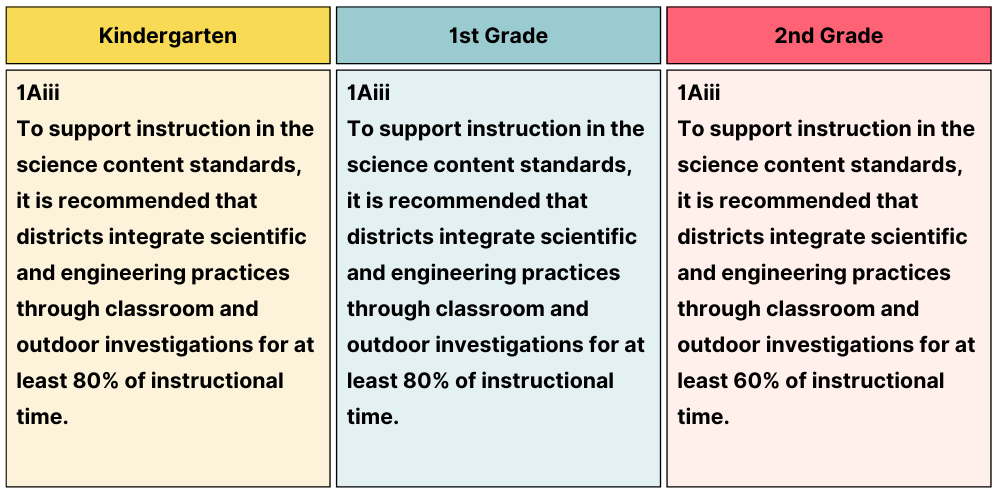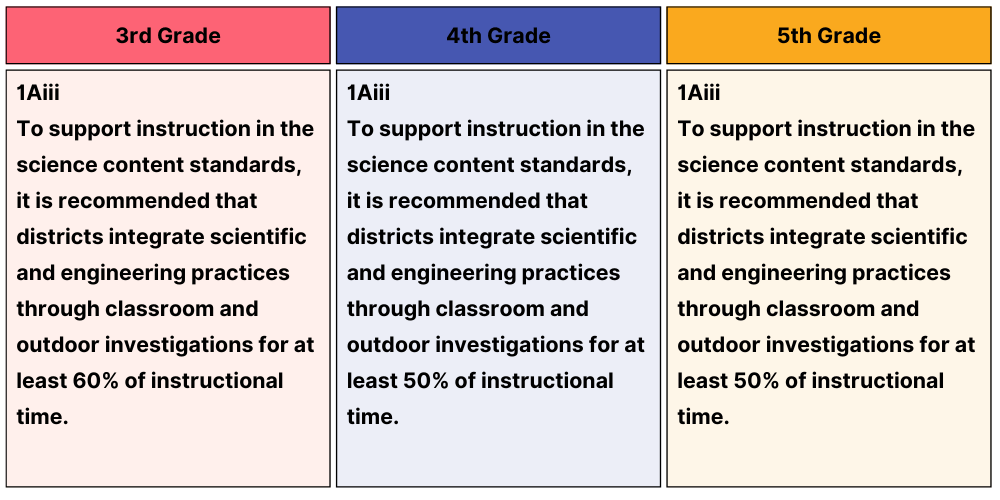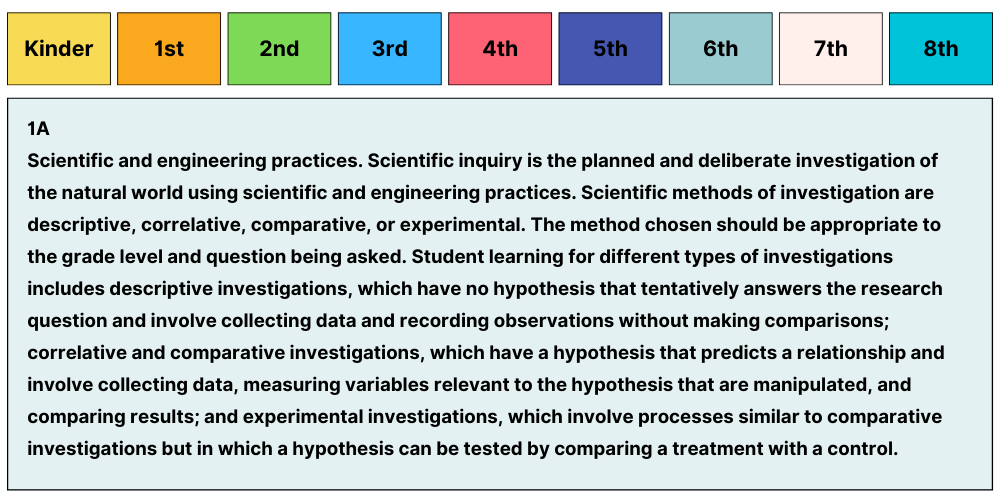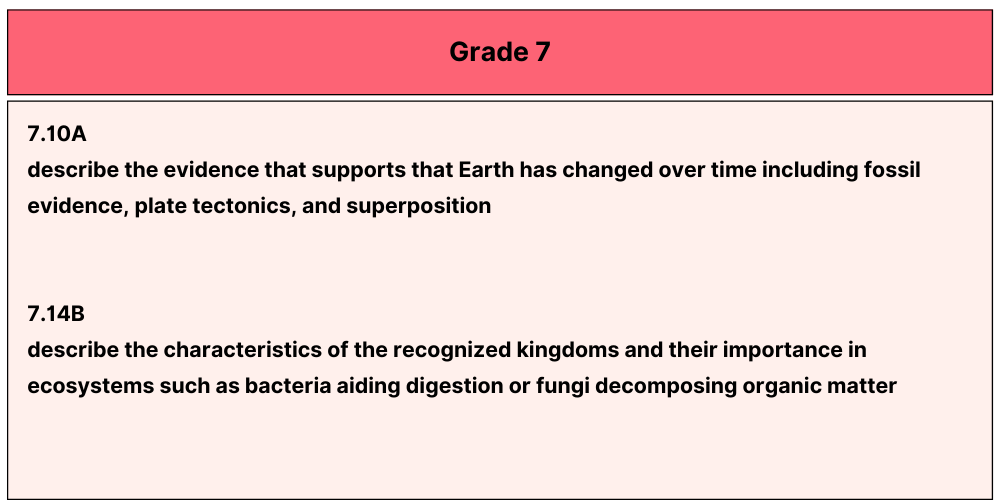The new Science Texas Essential Knowledge and Skills (TEKS) for Kindergarten through 12th grade will be implemented for the 2024-2025 school year. All grade-level TEKS have an Introduction followed by the standards. The Introduction can often be overlooked, yet it can contain valuable information. Let’s look at a few items that can be found in the Introduction of the new Science TEKS.
Time Spent on Investigations
The recommended time for investigations for kindergarten through Grade 5 is in the Introductions, specifically under 1Aiii. Look below.


Did you notice the classroom and outdoor investigations? It is suggested that they occur at least these amounts of time for the following grades?
- 80% for Kindergarten and Grade 1
- 60% for Grade 2 and Grade 3
- 50% for Grade 4 and Grade 5
You might be wondering about the percentages for middle school and high school. Their proposed percentages are 40%, but they are worded differently within their Scientific and Engineering Practices (SEPs). See below.

Kindergarten through Grade 5 emphasizes scientific and Engineering Practices (SEPs), outlined right after the Introduction. Both occur within and outside the classroom. Grades 6 through High School specifically list student actions that should occur during instruction.
Defining Key Terms and Practices
Since recommended percentages of time are provided for investigations and investigative behavior, the Introduction goes one step further to define the type of investigations students will engage in. See the wording below for Kindergarten through Grade 8.

Did you notice there are four different types of investigations?
- Descriptive
- Correlative
- Comparative
- Experimental
The content standards will note what type of investigation students will conduct. But, “What about high school?” High school science courses specialize in investigations that align with their focus.
Introduction and Definition of Terms
The Introduction also provides definitions for observations, inferences, hypotheses, and scientific theories in Kindergarten through Grade 8. Whereas some high school courses define hypotheses and scientific theories.
One word that is not defined and appears in the Introduction to Kindergarten through High School is phenomena. Below is an example.

Using the support of the Texas Education Agency’s TEKS Guide, phenomena pertain to naturally occurring, detectable events that are observable using the senses. Examples of phenomena could be volcanic eruptions or erosion.
A Key Statement
The last note about the Introduction is really the last statement. It comes at the end of every Introduction from Kindergarten through High School.
Statements containing the word “including” reference content that must be mastered, while those containing the phrase “such as” are intended as possible illustrative examples.
In our second blog, “Science Tools within the New Science TEKS,” we discussed this Introduction statement because the tools expectation include the terms “including” and “such as.” Below is an example of how this wording appears in the content standards.

Teachers must know that what follows the word “including” is a must, while what follows the phrase “such as” is a suggestion.
Conclusion
The introduction contains more, but this gives you an idea of what it contains. The Region 13 Science team offers continuing opportunities to explore the new Science TEKS more deeply with self-paced, online Canvas courses.
Browse our event catalog for the most up-to-date workshops. Be sure to bookmark the Region 13 Science webpage. This is a great place to see the latest resources and events.
Subscribe to the monthly Science newsletter to be the first to know about new offerings, news, and developments in the Science world.

Carolyn Beardsley
Carolyn Beardsley is the Elementary Science Instructional Coach at ESC Region 13.





Add comment